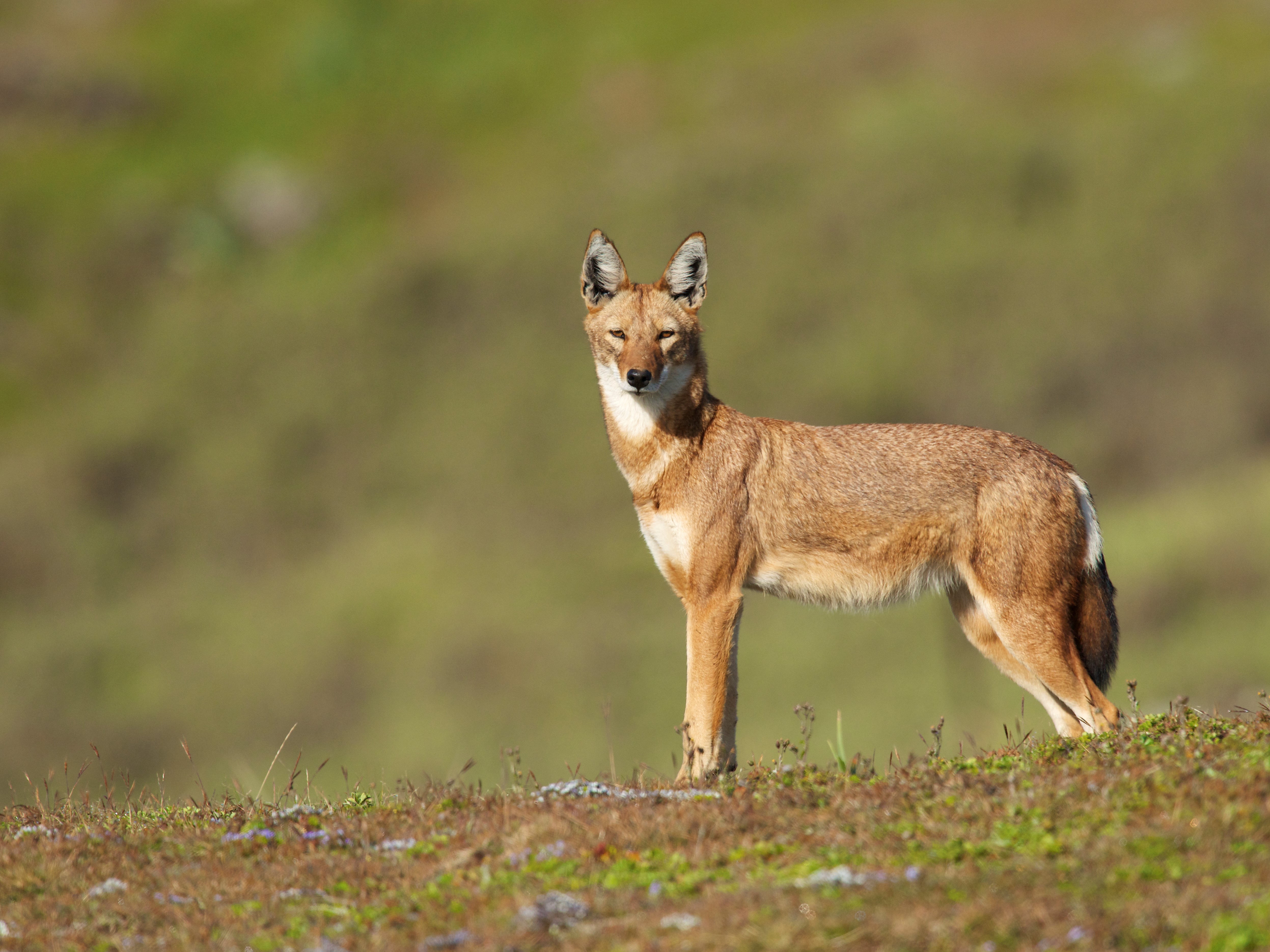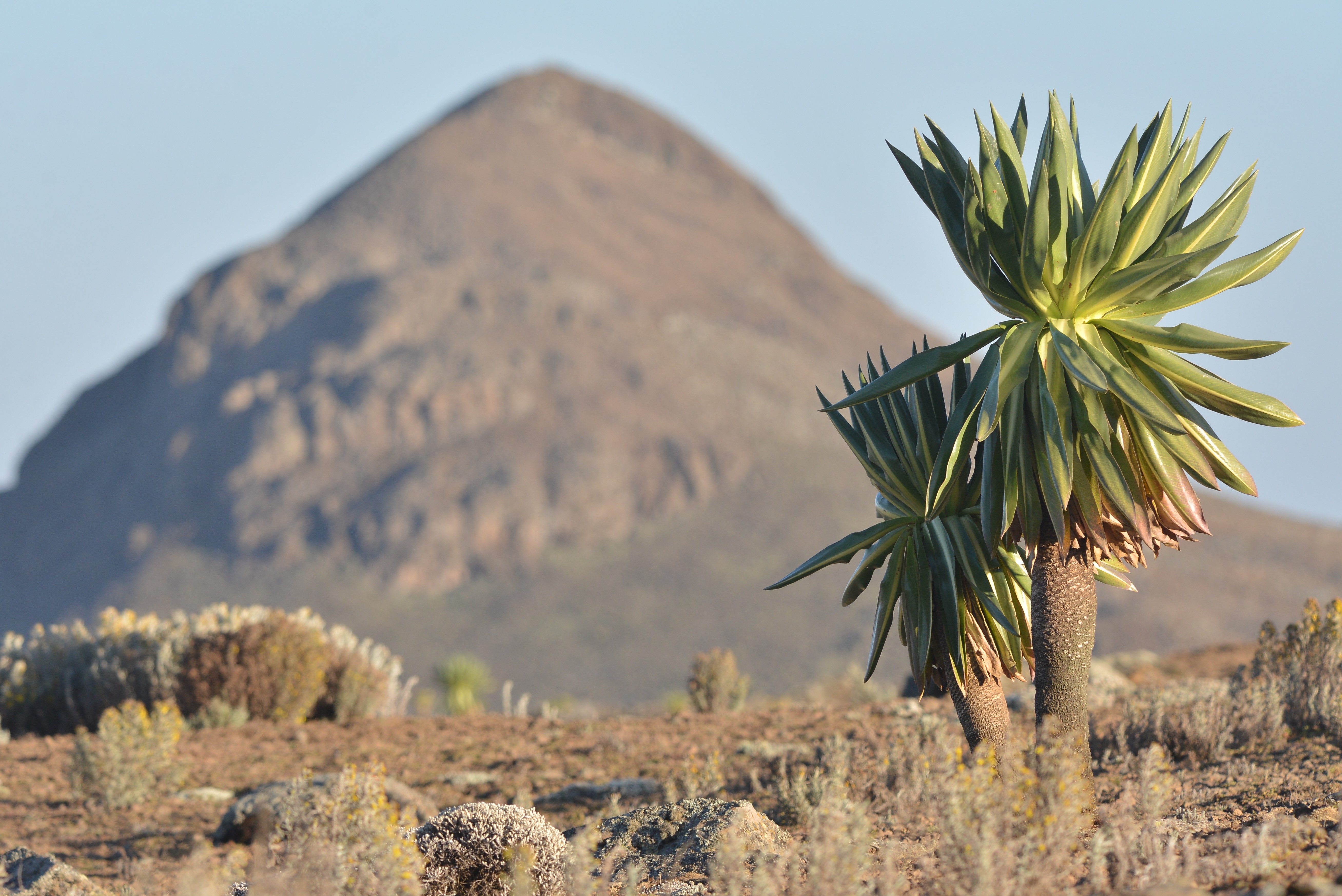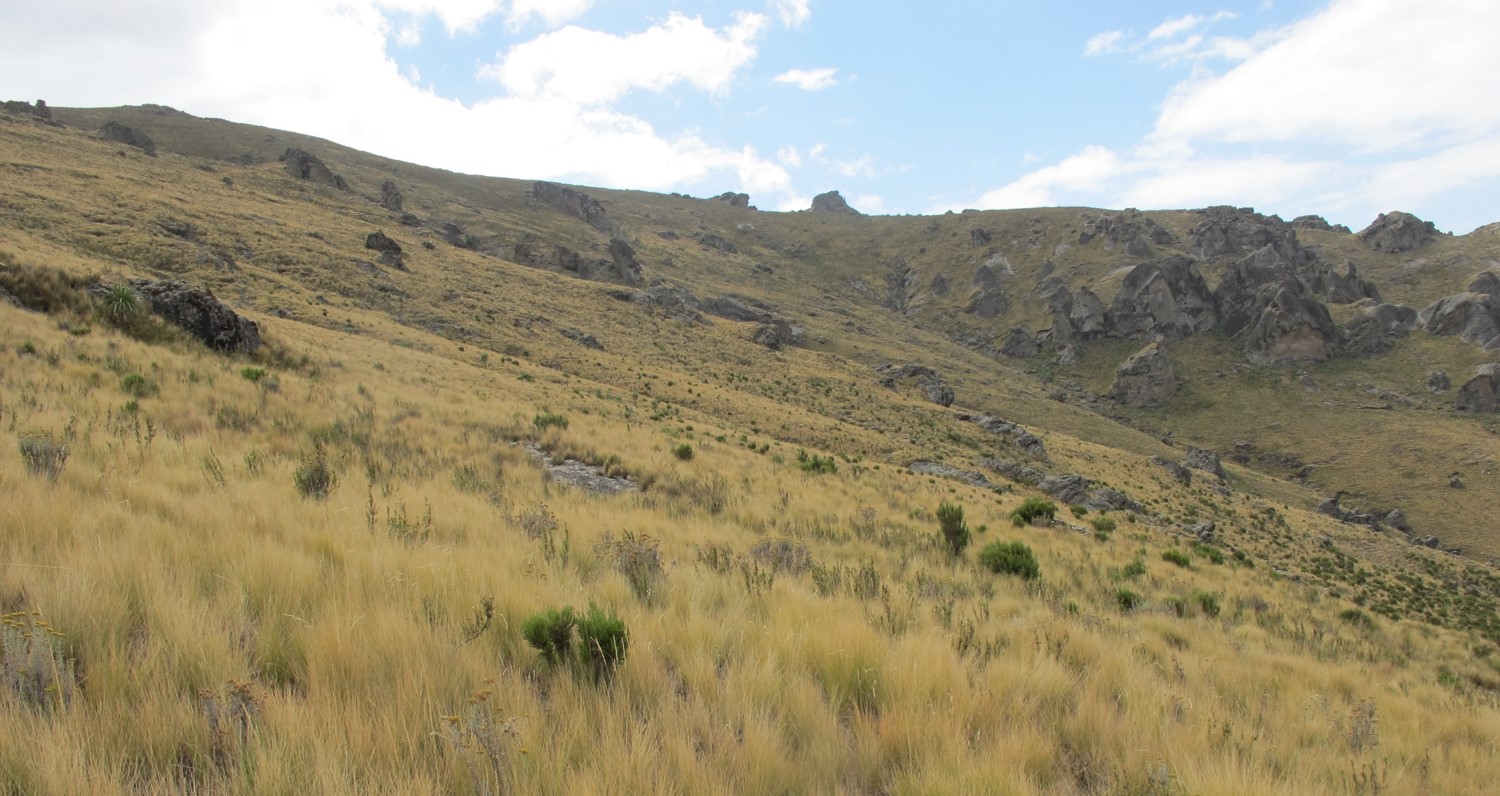

Ethiopia is home to an astonishing 70% of Africa’s Afroalpine ecosystem, with an exceptionally high diversity of rare and endemic species such as the endangered Ethiopian wolf, gelada monkey and walia ibex. Fewer than 500 Ethiopian wolves remain in a shrinking and increasingly fragmented mountaintop habitat, living in small, isolated populations. Ethiopia’s growing human population, which currently numbers over 110 million, live mostly in the highlands, exerting immense pressure on their natural resources. The need for sustainable use is urgent to ensure that Afroalpine ecosystem services and unique wildlife persist in the future.

In a win for Ethiopian conservation, the Borena Sayint Worehimenu National Park expanded in 2019 to include all the remaining biodiverse highland “guassa” grasslands in South Wollo. The native grass known as “guassa” is highly valued for its multiple uses, including thatching, rope-making and as fodder, and is at high demand in local markets. With support from the Ethiopian Wolf Conservation Programme (EWCP), these protected grasslands are now co-managed by local communities who are implementing a system rooted in old traditions, with phenomenal success. Communities exclude livestock to allow grasslands to grow, and regulate the harvest, including rotated extraction. With 18 kebeles (peasant associations) involved, the grasslands have recovered at an unprecedented rate from their previous exploitation. Each kebele manages their own resources with their own systems and by-laws, including ways to assist those most in need during a drought or as compensation for working as a community guard.

As well as providing a sustainable source of income for local people, healthy grasslands form vital habitat for Ethiopian wolves and their rodent prey. Knowing the importance of advocating for the role of communities in habitat conservation, EWCP has developed an ambitious plan to replicate the South Wollo model in Abuna Yosef Community Conservation Area (in North Wollo) and to engage more communities in alternative livelihoods compatible with conservation.
This plan, known as our Biodiversity Friendly Futures project, has received a generous grant from IUCN Save Our Species, co-funded by the European Union. Activities, planned to start in April 2020, but largely delayed due to the Covid-19 pandemic, include establishing microenterprises that depend on the protection of the highlands natural resources, such as honey production; production of fuel-saving stoves by cooperatives of women, and an exciting initiative known as “guassa gardens”. Guassa gardens are small plots of cultivated guassa around homesteads and in marginal agricultural land. Guassa gardens provide income and resources to families; they reduce erosion and preserve soil humidity; provide food and shelter for small rodents, boosting prey availability for wolves, and reduce harvest of wild grasses.

Co-management plans for grasslands in protected areas and cultivation of native grasses in agriculture land are based on traditional knowledge and provided not only direct financial gains for families, but also restore natural habitats for Ethiopian wolves and other wildlife. Working with experts and regional and local government partners, our targets for the next two years are: establish 80 more operational beehives, 5 more women’s cooperatives, 240 more farmers planting guassa, and one guassa management plan for a community-based protected area.
This publication was produced with the financial support of the European Union through IUCN Save Our Species. Its contents are the sole responsibility of EWCP and do not necessarily reflect the views of IUCN or the European Union.
![]()